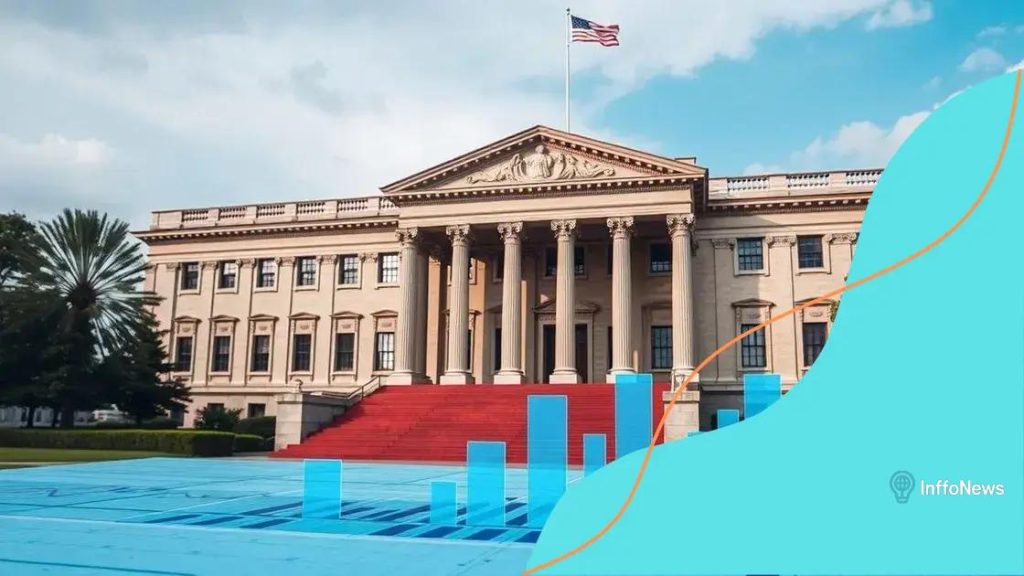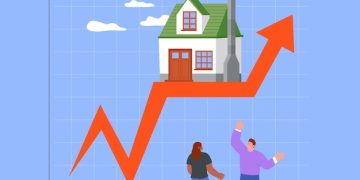Federal deficit concerns: what you need to know

Anúncios
The federal deficit is primarily driven by government spending, tax policies, and economic conditions, impacting interest rates and overall economic growth while presenting opportunities for individuals to advocate for fiscal responsibility.
Federal deficit concerns are becoming increasingly relevant as they shape economic policies and influence our lives daily. Have you ever wondered how it impacts your financial future?
Anúncios
Understanding the federal deficit
Understanding the federal deficit is crucial for grasping our country’s economic landscape. When expenses surpass revenues, the government faces a deficit. This shortfall can lead to challenges for future financial planning.
What Causes the Federal Deficit?
Various factors contribute to the federal deficit. Primarily, it results from government spending on programs like healthcare, defense, and social security. As more funds are allocated without equivalent revenue generation, the deficit increases.
- Increased spending on welfare programs
- Tax cuts reducing government revenue
- Economic downturns affecting income levels
- Rising healthcare costs
An essential part of the conversation around the federal deficit concerns how it impacts the economy. High deficits can lead to higher interest rates, which makes borrowing more expensive for businesses and individuals alike.
Anúncios
Long-term Effects of a High Deficit
Over time, a significant federal deficit can have long-lasting repercussions. It can create uncertainty in the economy, affecting investment and growth. Additionally, it may lead to a reliance on foreign borrowing, complicating fiscal policy.
Moreover, as the deficit grows, there’s an increasing necessity for fiscal responsibility. If left unchecked, it could harm the nation’s economic health, influencing both present and future generations.
How the deficit affects economic growth
The connection between the federal deficit and economic growth is vital to understand. When the deficit rises, it can lead to various economic outcomes that affect individuals and businesses alike.
Effects on Interest Rates
Firstly, a high federal deficit often results in increased interest rates. When the government borrows more money, it competes for funds in the financial market, which can drive up the cost of borrowing for everyone.
- Higher rates can slow down business investments.
- Consumers may face higher loan costs for homes and cars.
- Overall, economic expansion can be stifled.
- Less funding for public projects affecting infrastructure.
This situation creates a ripple effect on economic growth. As borrowing becomes more expensive, businesses may hold back on expanding or hiring new employees. This caution can lead to slower job creation, contributing to higher unemployment rates.
Impact on Government Spending
Additionally, a growing deficit forces the government to rethink its spending priorities. With more money directed towards paying interest on the debt, funding for essential programs like education and healthcare may be reduced.
As a result, citizens could experience decreased access to services they rely on. This can further hinder overall economic growth, as a well-educated and healthy workforce is crucial for productivity.
In this context, the federal deficit not only shapes fiscal policy but also affects the everyday lives of people. When individuals and families face economic uncertainty, their spending habits change, which in turn impacts the broader economy.
Key factors driving the federal deficit

Key factors driving the federal deficit include government spending, tax policies, and economic conditions. Understanding these elements helps clarify why the deficit is a persistent issue.
Government Spending
One primary driver of the federal deficit is increased government spending. When the government allocates funds to programs such as social security, healthcare, and defense, the costs can quickly exceed the revenue generated.
- Expansive healthcare programs lead to rising expenses.
- Defense spending can escalate based on global events.
- Social welfare programs aim to support citizens in need.
- Infrastructure projects often require significant investment.
This ongoing spending without sufficient funding can create a larger deficit each year. Additionally, unexpected expenses, like natural disasters, can further amplify this issue.
Tax Policies
Tax policies also significantly influence the federal deficit. When taxes are reduced or eliminated, government income decreases, making it harder to balance the budget. Tax cuts can stimulate the economy, but they may also increase the deficit if not coupled with spending cuts.
Similarly, economic downturns contribute to reduced tax revenues. During a recession, businesses earn less, leading to lower tax payments. This is often when government spending increases to support the economy, creating a challenging cycle.
Awareness of these driving factors is crucial to understanding the complexities of the federal deficit. They interact in ways that can trap the government in an uphill battle to regain fiscal stability.
Potential solutions to reduce the deficit
Identifying potential solutions to reduce the federal deficit is essential for achieving a stable economy. Various strategies can be implemented to address this ongoing issue.
Reducing Government Spending
One of the most effective ways to decrease the deficit is by reducing government spending. By carefully analyzing budgets, cuts can be made in areas that do not directly impact essential services.
- Streamlining government programs can improve efficiency.
- Reducing wasteful expenditures helps free up funds.
- Reassessing contracts with private vendors can lower costs.
- Encouraging voluntary programs may reduce costs.
This approach ensures that taxpayer dollars are used more effectively while still supporting vital public services.
Increasing Tax Revenue
Another potential solution is increasing tax revenue, which can be achieved through various measures. Updating tax policies can help create a fairer tax system while generating necessary funds for the government.
Some ways to enhance tax revenue include:
- Closing tax loopholes that benefit large corporations.
- Implementing a progressive tax system where wealthier individuals pay higher rates.
- Enhancing tax collection efforts to reduce evasion.
- Encouraging economic growth through incentives for businesses.
These changes can help balance the budget and potentially reduce the federal deficit.
Fostering economic growth can also contribute significantly. When the economy is thriving, tax revenues naturally increase. By investing in education, infrastructure, and job training, the government can create a more robust workforce capable of stimulating growth.
What you can do about federal deficit concerns
Addressing federal deficit concerns may seem daunting, but there are several actions individuals can take to contribute positively to the situation. Understanding personal finance and engaging in civic responsibility can make a difference.
Be Informed
First, staying informed about the federal deficit and its implications on the economy is key. Knowledge enables you to make educated decisions and advocate for changes.
- Read articles and news reports surrounding economic policies.
- Attend community meetings that discuss budget decisions.
- Engage with local representatives to express your concerns.
With awareness, you can be an informed voter who supports policies that promote fiscal responsibility.
Practice Responsible Financial Habits
On a personal level, practicing responsible financial habits is crucial. When individuals manage their own finances wisely, it aids in creating a more stable economy.
Here are some good practices:
- Budget your spending to avoid unnecessary debt.
- Save money for emergencies, which can reduce reliance on government assistance.
- Invest in your education and skills to enhance your earning potential.
By showing financial responsibility, you contribute to a healthier economic landscape.
Advocating for better fiscal policies is another impactful step. Engage in discussions about the importance of reducing wasteful spending and closing tax loopholes. Support initiatives that emphasize balanced budgets and responsible governance. Your voice matters and can influence lawmakers to take action against the federal deficit.
FAQ – Frequently Asked Questions about Federal Deficit Concerns
What are the main causes of the federal deficit?
The federal deficit primarily arises from high government spending, tax policies that reduce revenue, and economic conditions that affect income.
How does the federal deficit impact the economy?
A high federal deficit can lead to increased interest rates, which make borrowing more expensive for businesses and consumers, potentially slowing economic growth.
What can individuals do to help reduce the federal deficit?
Individuals can stay informed, practice responsible financial habits, support fair tax policies, and engage in community discussions about fiscal responsibility.
Are there solutions to address the federal deficit?
Yes, solutions include reducing government spending, increasing tax revenue, improving economic growth, and advocating for better fiscal policies.





